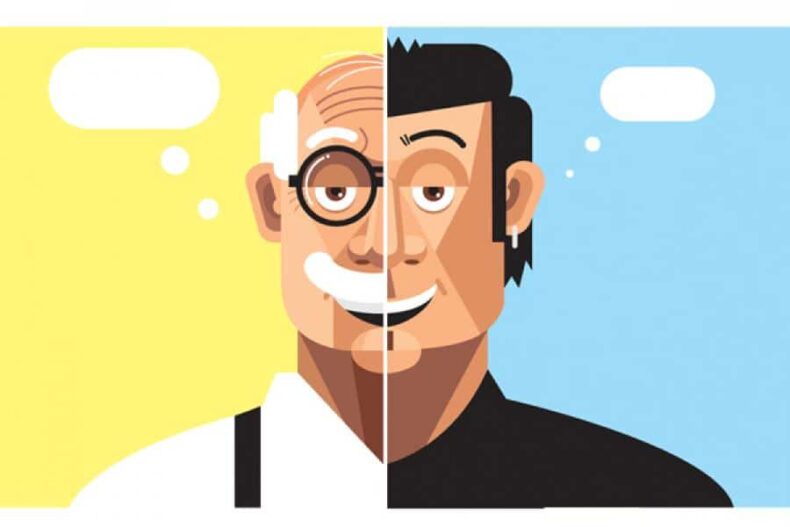Growing up, we always heard one statement, “in our time”. This statement signifies the difference between the era and the generation it belongs to. It is a matter of reminiscing; to the younger generation, it is a lesson. These lessons demonstrate the differences in approaches toward life and lifestyle.

Being older is being different
Everyone alive on this planet was once of a certain age, where someone else stands today. The genuine understanding of certain universal changes is readily accepted while many others are resisted. One of the changes is generational development; what the previous generation witnessed as an idea or a work in progress, the newer generation holds claims to it.

These changes cause every generation to be different from its predecessors and successors. And this, as well, is a universal fact. We should avoid the stigma of change as nothing is written in stone.
Cooperate and correlate
As children, we do not feel the need to differentiate between what was and what is, as our own lives are limited to education and fun. We rarely worry about hurting anyone or not being able to adjust to a certain environment. But when we grow, we learn many tactics for living a simultaneously smooth and turbulent life. A smooth lifestyle depends on how well we cooperate with things embedded in our lives through generations and correlates with the need for communication and understanding.

The better the approach to crossing the generational gap, the lesser the chances of mishaps. Everyone, whether young, middle-aged, or elderly, must understand the desire to be understood. The first step in forming a mutual alliance of understanding is accepting that there are differences and that we need to navigate through them.
Mental health and generational differences
A recent video of a famous cricketer, Kapil Dev, from his appearance at an event has made the rounds on the internet and has been met with criticism. According to him, depression and anxiety are nothing and cannot be experienced by teenagers. This statement is an absolutely horrendous attempt to disengage teens, adults, and the elderly of our time to strike a conversation about mental health.

Generation gap abstract concept vector illustration. Differences in beliefs, politics, and values, young people, parents and grandparents, generation conflict, society development abstract metaphor. This is an ultimate example of a lack of coherence with the newer generation and the findings related to it. We should be alert and accept the changes as they come, irrespective of the generation. A generation gap occurs with the fact of resistance. To hone a mind to adapt to new things around them is a difficult task. To reduce the chances of a calamity within a family, society needs to agree, accept, and understand changes that occur from one generation to another.
Build the bridge, reduce the gap
The bridge is the only way across the rubble of the past. While we stand in the tunnel of our time, we, as adults of our generation, understand the need to step out and build a bridge. Minding the gap that comes with changing times reduces the chances of trauma. Despite providing children with a healthy and positive environment, there are open spaces for trauma to sneak in.

These spaces are the gaps between the oldest generation the children encounter and their own. The community they live in and the society are made up of the same people but at different hierarchical levels. The middle generation, who are the parents to people who have reached the stage of bearing children, have seen it all. The technology that was in use during their lives has now come alive in their children’s time.

Mental health and technology are two topics accepted and discussed as easily as other areas of life. The trauma one faces because the oldest generation did not step up to bridge the gap will show in the attitudes they display.
Live and let live
To build a community that provides a safe space for everyone, we need to understand the what, why, and how of the situation and our approaches toward it. Comprehending the “what” of the connectivity between mental health and generational differences begins with the understanding that progress demands adaptability and cooperation.

To attain the “why,” we need to look at the situation at hand and grasp its severity. Trauma and rifts between generations can be reduced and brought to a level of understanding by accepting “how” one action or one guideline can lead to severed relationships.

Living one’s life according to the changes in society makes it easier for every generation. Modernity is the process and progress of the era one lives in, irrespective of age. In order to live, we need not force anyone into the clam of community and its development, but provide an open space for mutual understanding.













